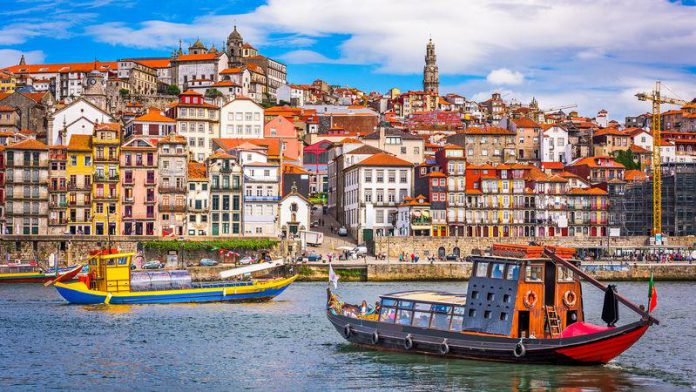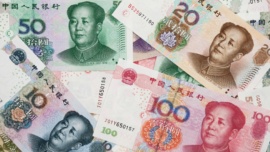MB September 2019 Special report | 40 Years, 40 Companies

Be Water – more investment
Beijing Enterprises Water Group, the leader in water treatment systems in China, bought Veolia’s water business in Portugal in 2013. The purchase of Veolia, the world leader in environmental services, cost MOP856 million.
This was the largest operation in the water sector on the Iberian Peninsula in many years and the first by a Chinese investor in the water sector there.
Beijing Entreprises Water, through its subsidiary Be Water, manages four water supply and sanitation concessions in Portugal (in Mafra, Ourém, Valongo and Paredes) and also provides operational services to Águas do Algarve.
The only affiliates of the group outside of China are those of Portugal and Australia. The whole area linked to Europe, Africa and South America is handled by Portugal, not only for BEWG, but also for the Beikong Group, ranked among the 500 largest companies in the world.
The Chinese company has already announced it intends to continue investing in Portugal, including via the possible purchase of more concessions, although this availability is not limited to the distribution of water to the home.

Bison Bank – Portugal and Africa
Bison Bank is an institution based in Portugal owned by Bison Capital Financial Holdings (Hong Kong) Limited, incorporated in Hong Kong.
In fact, Bison Bank is just the new name of Banif – Banco de Investimento, the acquisition of which was completed in July 2018 by Bison Financial.
Bison seeks to distinguish itself “based upon the privileged link to the Asian market,” positioning itself as the “financial bridge between Asia, Europe and vice versa . . . [and opening] . . . investment opportunities in the most varied countries,” said Lijun Yang, non-executive chairman of Bison Bank, last year. “With the launch of Bison Bank, we will support Asian clients interested in investing and expanding their business internationally as well as international investors interested in China.”
Management want the Portuguese bank focused on the area of wealth management and investment banking, forecasting revenue will grow to three digits next year. The bank expects to be in profit the following year.
Also, last year Bison Capital Financial Holdings of Hong Kong acquired 48 per cent of the capital of Mozambican bank Banco Mais, having made a MOP100 million injection into the African bank.

CSCEC – public works
CSCEC, China State Construction Engineering Corporation, the largest construction company in the world, and owned by the Chinese state, set up a subsidiary in Portugal last year.
CSCEC – China Construction Portugal, as the company will be called – is headquartered in Lisbon.
The company has great ambitions in Portugal but is still in a stage of installation and understanding of the Portuguese reality (in recent months it has hired staff, especially engineers). Macau Business knows that they intend to compete for the construction of large public works such as railways and land communications, airports and road terminals. Another area of interest is the design and construction of architectural and engineering projects, including the management of these projects.
Finally, they will continue investing in urban development and real estate built by them or third parties, including tourist and hotel properties. Last year, they made a MOP180 million offer for 7.5 per cent of the company owning the largest bridge in Portugal, but failed to complete the deal.
Recently, they landed their first big deal: the Chinese group acquired 50 per cent of a Portuguese real estate company to develop a large office, housing and commerce project near Lisbon.
CSCEC used its existing structure in Macau to enter Portugal, and is one of the first times that a large (state) Chinese company has entered Portugal drawing on the knowledge of Macau.

China Three Gorges – the biggest
China Three Gorges (CTG), a Chinese state-owned company founded in 1993 and one of the largest enterprises in the world, paid MOP 23.5 billion in 2012 for 21.35 per cent of Portugal’s largest energy company, EDP.
Different to all the other investments made by Chinese companies in Portugal, CTG bridled at a tax on the energy sector, applied in 2014 by the Portuguese Government.
The managers of CTG even formalised a protest against the new rate but had no alternative but to unwillingly accept the measure. The then-president of the company, Cao Guangjing, even remarked that the investment in EDP, although positive, did not generate the expected return due to the impact of the economic crisis and the extraordinary rate applied to the energy sector.
In 2017, CTG reinforced its position in EDP, having bought an additional 1.9 per cent of the company, in an investment worth MOP2.3 billion, raising its stake to 23.3 per cent. Last year, they launched a takeover bid for all of EDP’s capital, but subsequently had to withdraw it.
EDP always had investments in Macau, namely in CEM, interests that did not disappear with the entrance of CTG.

China Tianying – waste and insurance
The collection and treatment of waste in Portugal is an area of interest to Chinese companies. First was the state group Firion Investments, who took a (minority) position in the shareholder structure of SUMA and EGF – Empresa Geral de Fomento, two local companies in the sector.
When Firion decided sell that position, the buyer was another Chinese company, China Tianying Inc., a private group.
This is no longer the first business of China Tianying in Portugal: last year, they bought French Groupama’s insurance business.
According to the management of the Chinese company, the goal is to grow not only in Portugal but in Portuguese-speaking countries in Africa and South America via the insurance business.
China Tianying Inc. (headquartered in Shanghai) is an environmental protection and new energy enterprise ‘engaged in investment [plus] build, operation and maintenance of MSW incineration power generation and steam manufacture, sludge treatment, food waste treatment, hazardous waste treatment, construction waste treatment, wastewater treatment.’

Cofco – shared services centre
Cofco, a global agro-industrial trading company operating in 35 countries and employing more than 12,000, aims to be world leader in the grain, oil and sugar supply chain with assets in the Americas, Europe and Asia Pacific. It is the latest Chinese company to invest in Portugal.
A few months ago, the company opened a shared services centre, and intends to reach ‘400 employees in two years’. This centre will provide Cofco’s global corporate services, especially in IT, operations, resources human resources and procurement, among other functions, plus the transfer to Portugal of the financial part of the company, currently located in Argentina,
Cofco chose Portugal to implement this centre ‘for several reasons, such as highly qualified human resources, strategic location – proximity to the global headquarters in Geneva and good air connections to several markets where Cofco operates – the use of Portuguese, Castilian and English, the support of the Portuguese Government through AICEP, and the opening of Portugal to international business,’ explained the Chinese public company. The agreement for the installation of the Chinese multinational was signed during President Xi Jinping’s last visit to Portugal.
“This Cofco project will attract more Chinese companies to open more plants and factories in Portugal,” predicted Cai Run, China’s ambassador to Portugal, during a visit to the new Cofco centre.
























